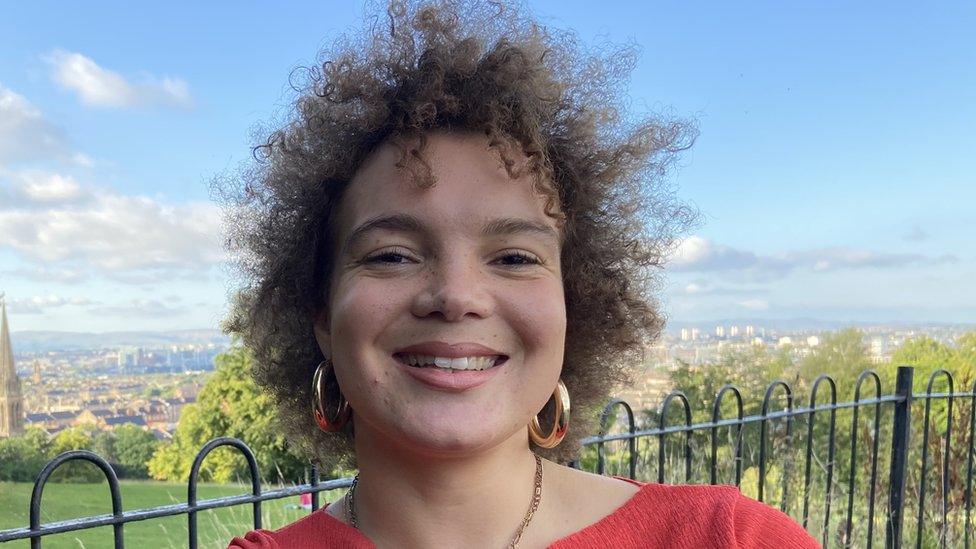Spice Gaels to BBC Alba: 100 years of Gaelic TV and radio
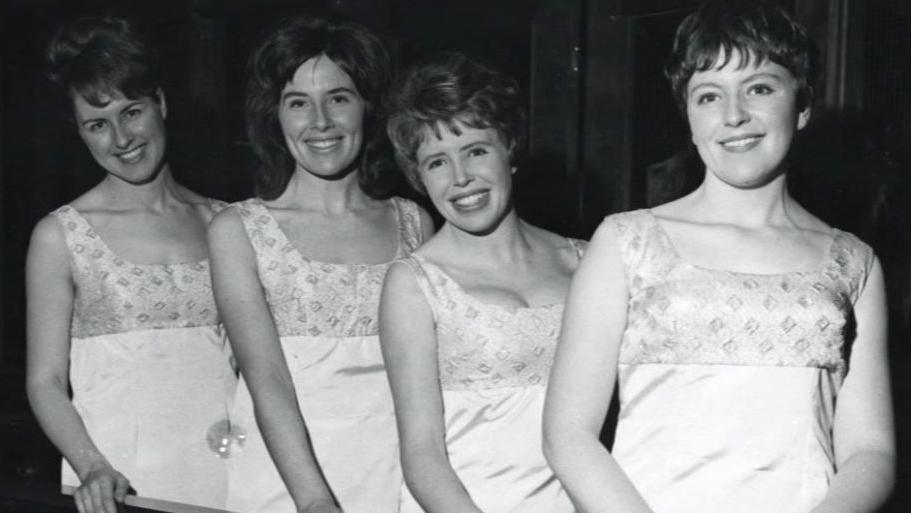
Gaelic singers The MacDonald Sisters were stars of programming in the 1960s
- Published
One hundred years ago the first BBC radio transmission in Gaelic was broadcast.
The 15-minute service, recorded at an Aberdeen church, was aired from a studio in the city on 2 December 1923.
It was followed by increases in output just after World War Two, and again in the 1960s, 70s and 80s eventually leading to today's range of Gaelic radio, TV and online content.
Dr Dòmhnall Uilleam Stiùbhart, a senior lecturer at Sabhal Mòr Ostaig, the National Centre for Gaelic Language and Culture, said Aberdeen was the "epicentre" of Gaelic broadcasting in the early years of the BBC.
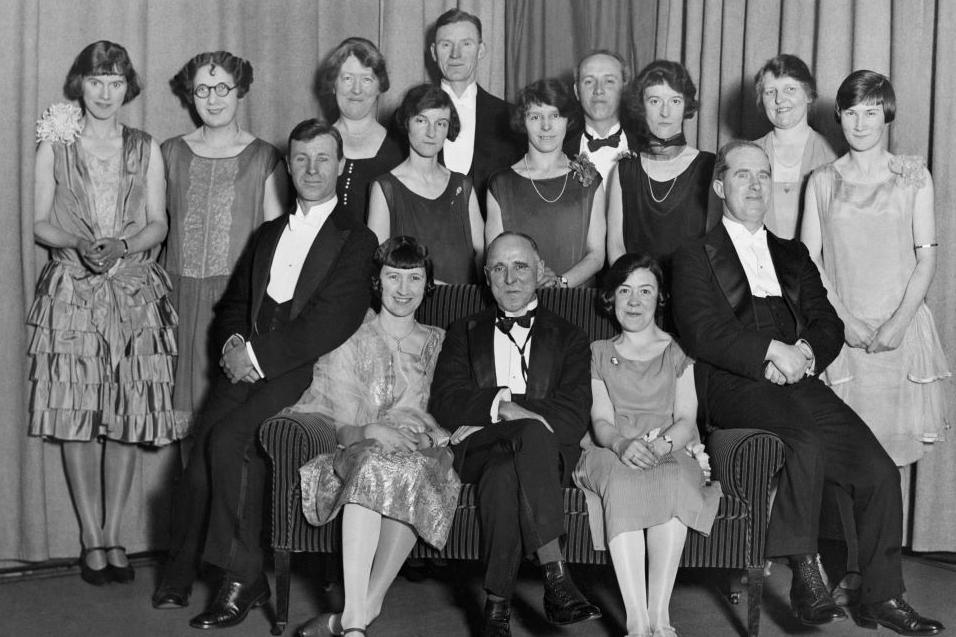
BBC Aberdeen staff in 1928
Dr Stiùbhart said the early days of the BBC involved broadcasts that were experimental and, at times, even playful.
"These people were making relationships with their listeners so it was in their interest to emphasise local culture and identity, and that's the reason we find Gaelic," he said.
The first Gaelic broadcast in 1923 was a recording of a short religious address by the Rev John Bain, who was originally from Gairloch, at the High United Free Church.
The church is thought to have been in Aberdeen's Belmont Street area.
It reached the airwaves from a BBC studio that had started operating just two months earlier.
The sermon, which was followed by Gaelic psalms, could be heard on the BBC's Home Service - with the BBC Radio Scotland national service still another 55 years away from being established.
Gaelic songs were broadcast in the following weeks.
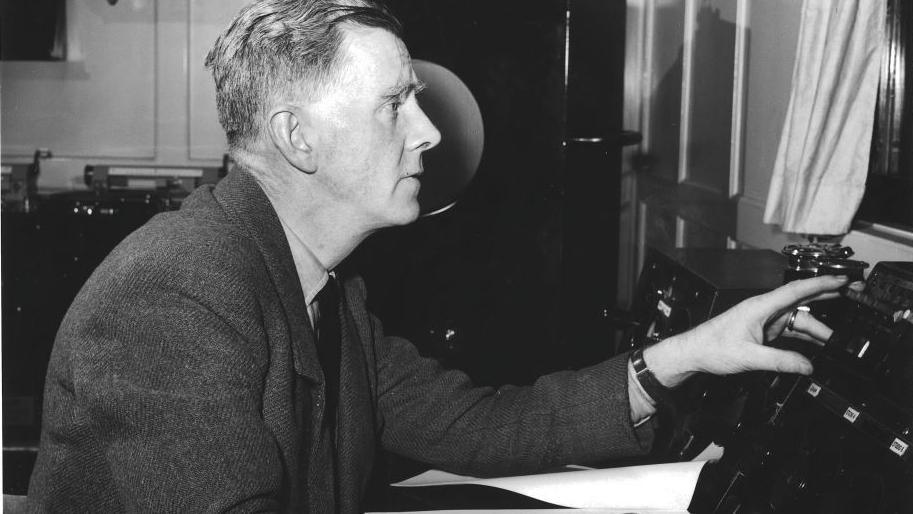
Gaelic producer Hugh MacPhee working at BBC Aberdeen in the 1950s
Gaelic's heartlands are in the Highlands and Islands, but Aberdeen was the main source of Gaelic output at the time due to the influence of local BBC employee Neil Maclean.
He was a well-known Gaelic singer and a gold medallist at the Royal National Mod, Scotland's biggest annual celebration of Gaelic language and culture.
Glasgow, Inverness and Stornoway would later become the main locations of BBC Gaelic output.
Gaelic radio broadcasts were suspended during World War Two.
After the end of the war in 1945 the BBC dedicated one-and-half hours of content a week to Gaelic - an increase on pre-war levels of 30 minutes per week.
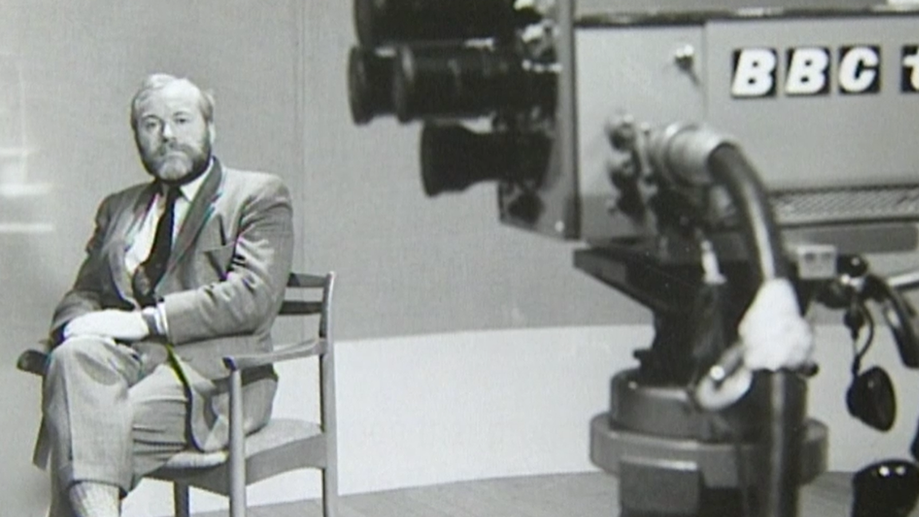
Fred Macaulay joined the BBC in 1954 and rose to the position of head of Gaelic
The 1960s would be marked by innovative programme-making led by North Uist-born Fred Macaulay.
A soldier during the war, he worked for the Linguistic Survey of Scotland cataloguing Gaelic dialects.
Mr Macaulay, who rose to head of Gaelic, would prioritise places where the language was dying out, often spending a week with Gaelic speakers recording their dialect and histories.
He joined the BBC in 1954 and is credited with laying the foundation for modern Gaelic broadcasting on radio and TV.
One of his proudest achievements at the corporation was recording the accounts of more than 20 survivors of the Western Isles' Iolaire disaster, the sinking of a naval yacht carrying hundreds of islanders home from World War One.
Fred MacAulay described The MacDonald Sister as the original Spice Girls
Mr Macaulay's TV work included the music programme Se Ur Beatha. He even created groups to perform on the show.
They included The MacDonald Sisters, whose 1960s pop aesthetic and Gaelic songs were popular with UK and international audiences.
In a 1997 interview, Mr Macaulay described the group as the original Spice Girls.
When the sisters - Kathleen, Una, Peigi and Fiona MacDonald - were unavailable due to members being pregnant, Mr Macaulay formed another all-female group called The Edin Singers.
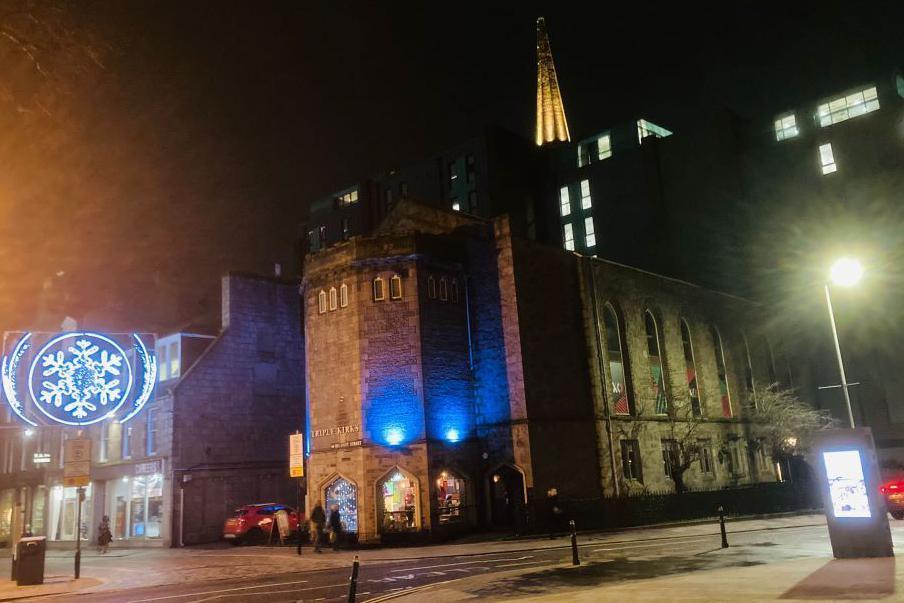
The service is thought to have been recorded in Aberdeen's Belmont Street
Mr Macaulay was prepared to push the boundaries of Gaelic television.
The making of psychological television drama, Ceann Cropaig, marked another first.
But not everyone was impressed, and Mr Macaulay recalled receiving a letter from an unhappy Harris crofter.
He was unhappy that he had made the effort to milk his cow early so he could complete a walk of several miles to watch TV, only to find an edgy drama not to his taste.
Mr Macaulay, who died in 2003, also told of encountering opposition within the BBC to Gaelic being offered more opportunities.
In 1997 he said he had found some decision-makers within the corporation "biased in favour of the south".
A brief history of Gaelic broadcasting:
December 1923, Aberdeen - BBC's first Gaelic radio broadcast
1936, Iona - First outside broadcast
1945 - Gaelic output increases to one-and-a-half hours
1964 - First Gaelic TV shows
1976 - Radio Highland established in Inverness. The new station is bilingual
1976 - Grampian TV produces the first commercial TV Gaelic programme
1979 - BBC Radio nan Eilean launches in Stornoway, Lewis
1985 - BBC Radio nan Gàidheal established to take over Gaelic programming from Radio nan Eilean and BBC Highland
1988 - Comunn na Gaidhlig review says Gaelic television essential to the survival of the language
1990s - BBC Radio nan Gàidheal becomes a fully national Gaelic service
September 2008 - TV service BBC Alba launches
There was later further expansion of Gaelic output on the BBC.
Dr Uilleam Stiùbhart said there were important developments in the years between the two world wars, including Scotland's first outside broadcast - a Gaelic service from Iona Abbey in 1936.
Aberdeen-based Grampian TV produced the first commercial television Gaelic programming in the mid-1970s.
Several reports - including 1988's Commun na Gaildhlig review - called for government support for the provision of Gaelic programme to help the language survive and thrive.
Fifteen years ago, MG Alba and BBC launched the BBC Alba service, which includes news, drama and children's programmes.
Dr Uilleam Stiùbhart said: "For me, the most important benefits that all this has brought Gaelic are it has given us self confidence, it has given Gaels a voice in national conversations."
He added: "I think it's important to pay tribute to BBC employees in the Gaelic department who faced indifference and hostility over the years to ensure a viable Gaelic broadcasting service was begun and maintained."
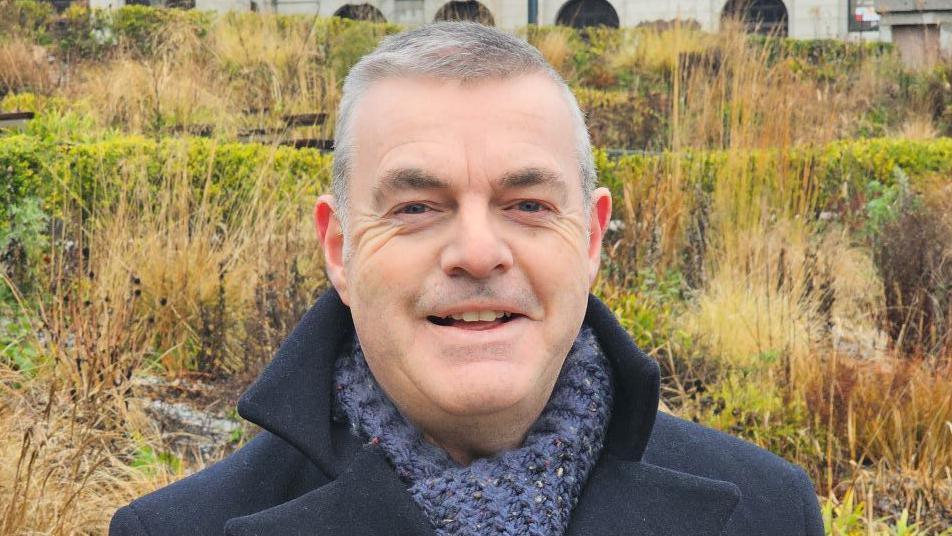
Aberdeen-based STV presenter Norman MacLeod said challenges to Gaelic 100 years ago were still experienced today
Scalpay-born Gaelic speaker and Aberdeen-based STV presenter, Norman MacLeod, said Gaelic broadcasting contiuned to face challenges.
He said: "I think the challenges that existed in the 20s remain today - how do you make the language relevant? How do you make it accessible?
"I think that was the big challenge the BBC executives had in the 20s, how to make it interesting to the majority who were listening back then who spoke English, and the Gaels who the service was supposed to be for."
Coverage of the centenary of the first Gaelic transmission will be covered across BBC Alba on Friday, before later being available on iPlayer and BBC Sounds.
Related topics
- Published22 September 2023
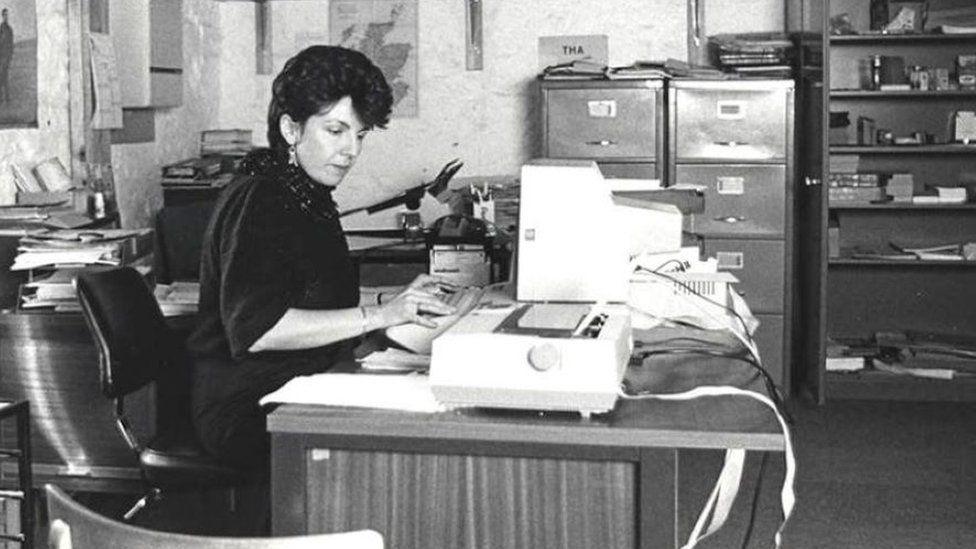
- Published20 October 2022

- Published4 October 2021
